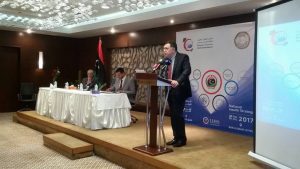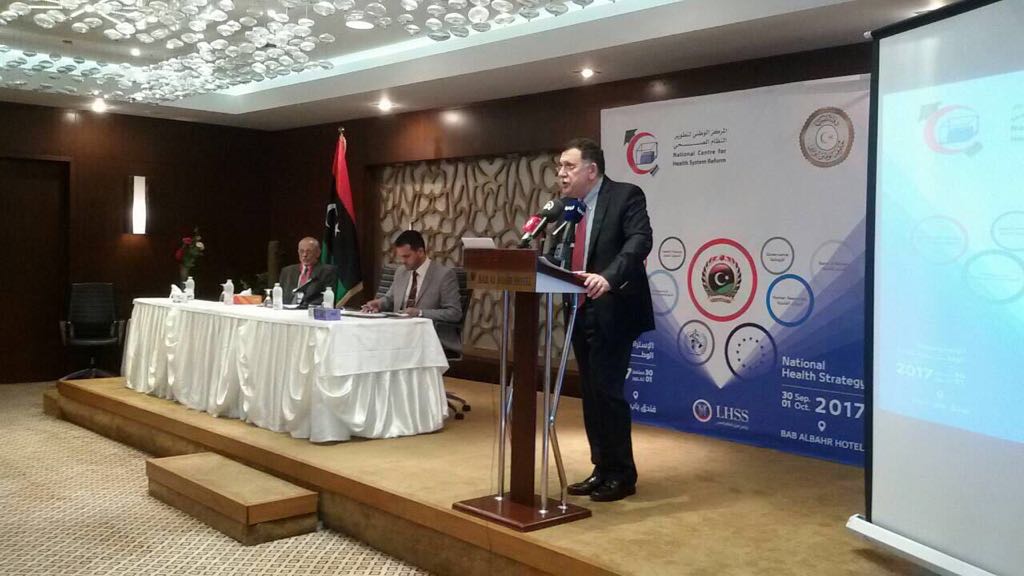By Libya Herald reporter.

Tripoli, 2 October 2017:
The healthcare system in Libya has to be radically reformed and more money put into it, Presidency Council (PC) head Faiez Serraj has said.
Speaking at the launch of the National Centre of Health System Reform (NCHSR) in Tripoli on Saturday, he said that there were a number of developments urgently required if ordinary Libyans were to have access to quality healthcare. Top among these were the rehabilitation and upgrading of existing health facilities and training programmes for medical personnel.
There also had to be cooperation between the public and private sectors. Standards also had to be set, and lessons had to be learned from the healthcare experiences of other countries, he stressed, admitting that the Libyan health system had declined not just with the chaos of the current political crisis, but over decades because of mismanagement by the previous regime.
Serraj also called for regular conferences in Libya to exchange information on the latest ideas in healthcare. It was not enough simply to come up with new systems for the country’s health service, he added. They had to be monitored as well, to make sure the ideas were happening, and working.
With the launch of the NCHSR, the heath service in Libya could improve, Serraj said. A quality health system and a quality education system were two of the main foundations in building a modern democratic state, he told the two-day conference on healthcare reform, adding that much more money had to be invested in both.
The NCHSR launch ceremony, attended by various health and education experts and officials including deputy PC health and education ministers, delegates then proceeded on Saturday and yesterday to discuss healthcare changes.
The NCHSR was set up in March 2017 by the Presidency Council to coordinate national efforts and international backing to reform and modernise the system. Headed by Samir Sagar, it operates in collaboration with the health ministry, and springs out of the Libya Health System Strengthening Programme (LHSS), set up between the Libyan authorties and the European Union.
The NCHSR’s goal is to
- restructure the health system;
- ensure full funding for a service that is free to patients at the point of use;
- involve the private sector;
- have a healthcare service in line with international standards;
- decentralise;
- have a service where health workers, whether in the private or public sectors, are properly paid for their work;
- develop a master plan to achieve universal health care in Libya.









